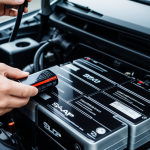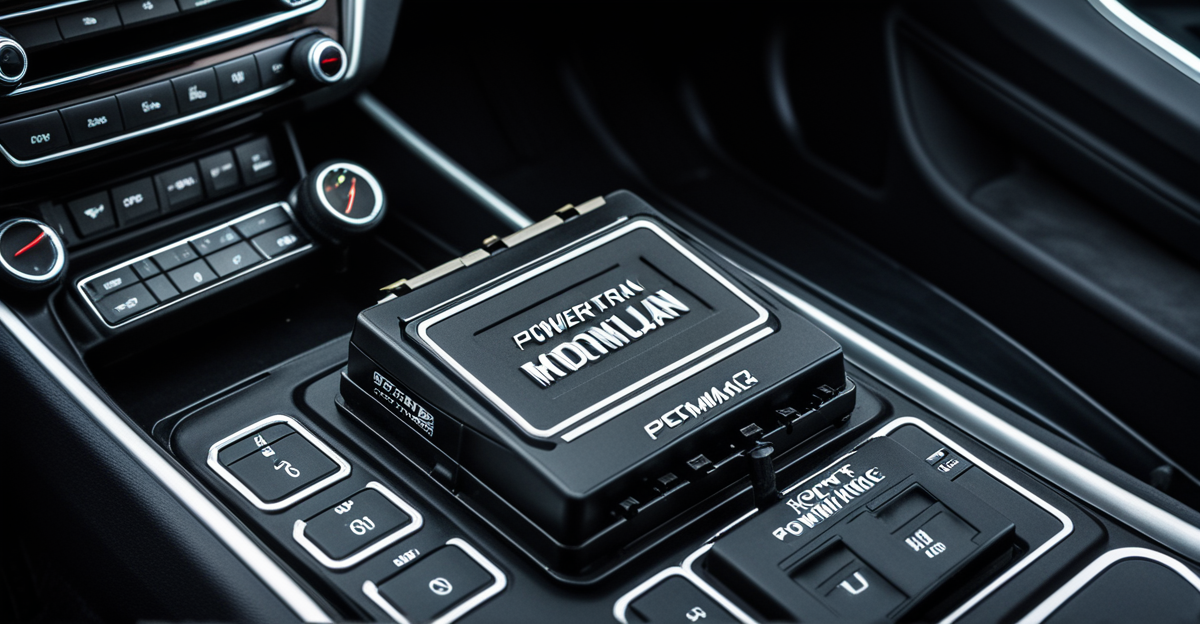Recognising Early Warning Signs of PCM Trouble
Identifying PCM warning signs early can prevent costly repairs and maintain vehicle reliability. A primary indicator involves common dashboard warning lights such as the Check Engine Light (CEL), which frequently signals powertrain control module symptoms. When this light remains on or flashes, it often points to PCM-related issues affecting engine performance.
Performance changes are another critical group of symptoms. Drivers may experience engine stalling, hesitation during acceleration, or erratic idling. Poor fuel economy is a typical side effect of PCM malfunctions, as the module controls fuel injection and ignition timing. These powertrain control module symptoms can degrade drivability substantially.
Also read : Boosting Airbag Efficiency in Minivans: Essential Strategies for Ultimate Safety and Protection
Additionally, elevated emissions or failed emissions tests can suggest problems with PCM function, as it directly manages emissions controls. A malfunctioning PCM may cause an increase in harmful exhaust gases or irregular exhaust behavior.
Recognising these early warning signs—dashboard alerts, performance irregularities, and emissions issues—enables timely diagnosis. Paying close attention to these symptoms can save time and money by addressing PCM warning signs before they escalate into full module failure.
Additional reading : Essential Guidelines for the Safe Handling and Disposal of Hybrid Vehicle Batteries
Diagnostic Methods for PCM Problems
Accurate PCM diagnostics begin with scanning the vehicle’s onboard computer for diagnostic trouble codes (DTCs). These codes provide precise insight into which powertrain control module symptoms are present. Using an OBD-II scanner, technicians or informed vehicle owners can retrieve DTCs that point directly to PCM-related issues or other engine components.
Following code retrieval, a thorough visual inspection of wiring harnesses and PCM connections is essential. Faulty or corroded wiring can mimic PCM troubles, so confirming the integrity of electrical connections helps avoid misdiagnosis. Loose connectors or damaged wires often contribute to intermittent PCM warning signs.
In cases where basic scanning and visual checks do not resolve the issue, advanced diagnostics may be necessary. This can include using specialized testing equipment to monitor real-time PCM outputs or voltage levels. At this stage, consulting a professional with expertise in vehicle computer troubleshooting is advisable to ensure accurate diagnosis and avoid unnecessary repairs.
Effective PCM diagnostics combine these methods to comprehensively identify root causes, helping to differentiate true module failures from external factors affecting powertrain control module symptoms. This approach minimizes costs and improves the likelihood of timely, effective repairs.
Essential Maintenance Procedures for PCM Longevity
Proper PCM maintenance procedures are vital to ensure long-term reliability and prevent unexpected failures. Regular inspections should include checking the PCM’s physical condition and its connector pins for corrosion or damage. Cleaning contact points gently with appropriate electronic cleaners helps maintain solid electrical connections, which directly affect powertrain control module symptoms.
Another critical aspect of PCM care tips involves keeping the vehicle’s software up to date. Manufacturers release updates to optimize the PCM’s performance and fix bugs that may cause erratic behaviour or inaccurate sensor readings. Neglecting software upgrades can lead to persistent issues affecting engine operation and fuel efficiency.
Battery maintenance plays a pivotal role. During battery changes, care must be taken to disconnect power correctly and avoid voltage spikes that can harm the PCM’s microprocessor. Additionally, maintaining the electrical system’s overall health—including alternator and grounding points—reduces the risk of damaging PCM components.
Incorporating these routine checks—cleaning connectors, updating software, and managing electrical integrity—addresses common causes of PCM warning signs. Proactive PCM maintenance procedures improve drivability, extend module life, and minimize costly repairs by preventing minor issues from escalating.
Preventative Tips and Professional Repair Options
Taking proactive steps in preventative PCM care significantly reduces the risk of costly module failures. Regularly monitoring for subtle powertrain control module symptoms—such as minor performance dips or intermittent warning lights—enables early action before issues worsen. Drivers should avoid habits that expose the PCM to electrical surges, like improper battery jump-starts, as sudden voltage spikes can damage internal circuits.
A practical checklist for when to seek professional PCM repair services includes persistent dashboard warnings, unexplained engine stalls, or failed emissions tests despite other maintenance efforts. If routine PCM maintenance procedures have been followed but symptoms persist, consulting an expert ensures precise diagnosis using advanced vehicle computer troubleshooting tools.
Certified repair shops provide specialized equipment to reprogram, reset, or replace faulty PCMs safely. They can also evaluate related components to avoid unnecessary module replacements, saving time and money. Professional services often include warranty-backed repairs and software updates, ensuring the PCM maintains optimal condition after intervention.
In summary, cultivating good preventative PCM care, recognizing when to escalate repairs, and partnering with reputable professionals form a comprehensive strategy to protect PCM function and keep your vehicle running smoothly.










